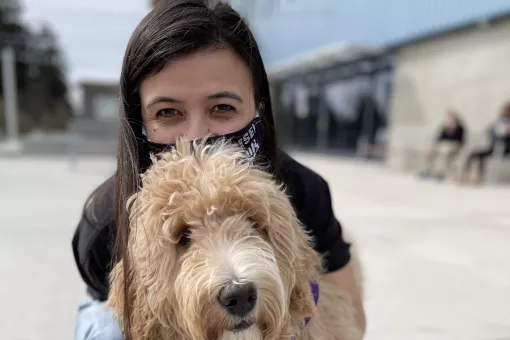Emily Morisawa shares her thoughts on growing up as a Japanese American in Washington. Emily currently serves as the Association Director of Member Experience.
I am a Japanese American, and I want to start off with that statement to highlight the fact that even though that makes me Asian American, not all Asian American experiences are the same, because not all Asian Americans are the same.
Something that’s controversial to people is the fact that our perceptions of the world don’t align. Based on our experiences and environments alone it’s nearly impossible to have the same outlook on the same event. I’m hopeful that sharing my view of the world in conjunction with my story will open people’s perceptions and understanding of what our fellow humans might experience.
I am a Japanese American woman who was raised in the suburbs of south King County in Washington. While here in the PNW we tend to think of ourselves as more forward-thinking, that hasn’t stopped the microaggressions, subtle racism, and outward racism that have been prevalent throughout my life. I think if you talk to any POC, you’ll find they have an entire library filled with similar experiences.
Today though, I want to tell you a story about representation. One of my favorite movies of all time is Mulan. When my parents brought that movie home on VHS I finally felt like I could imagine myself as the main character. I wasn’t the sidekick that was killed off or the band nerd that supported all the main character’s ambitions. I was Mulan, a powerful woman who could kick butt. I finally got to see someone that kind of looked like me be the hero. Up until that point in my life, all I had seen was that I was merely a side character in someone else’s story. It’s a hard feeling to describe. It’s not that I enjoyed shows or books any less; it was just that I couldn’t see myself there. I distinctly remember rooting for any character that looked like me in all other movies and TV shows, any cast member that was Asian. Even if they were just a side character.
Growing up, it’s hard not to want to BE someone, but how can you be someone who looks nothing like you? Who doesn’t have a similar culture or relatable story?
Even now as an adult I look for other adults that look like me, who are CEOs and leaders in their organizations. Someone whose journey I can look at and take notes. I still struggle to find my “Mulan” in the adult world.
I want to share these memories and thoughts with you not because they are painful, not because they are times when there was obvious wrongdoing in need of being fixed, but because they are such simple, everyday occurrences. While racism shows up in an overt fashion too often, people of the non-majority are also working through these other, more subtle things that quietly tell us that we don’t belong.
While Mulan was a fantastic media representation for me, she was the only character I could relate to for a long time. She also wasn’t a character that all Asian Americans could see themselves as and she truthfully wasn’t even from my own culture, just the closest thing to it.
The Asian community is being left behind in this move toward equity. For so long we’ve been the community that’s seen as most “white like” but not “white enough” depending on who you are and where you stand. I think my existence reflects exactly that sentiment, of not belonging anywhere. I think the increased attacks on the API community and the slow movement to respond reflect that sentiment.
I was once told by a white US citizen that the price for someone who immigrated to this country was racism.
I believe we’re better than that, and not only will we decide that racism is unacceptable in all of its forms, but we’ll take it a step further and decide that considering our minorities in our communities is essential.
So what can we do? How can we move forward from here? I believe it’s critical that we try to be the best allies that we can to each other. We try to understand each other’s stories, we try to learn about each other’s experiences and cultures. We agree that we don’t stand for racism on any level and give ourselves grace for the imperfection that comes with the trying.
At the Y, we agree that we are a community that draws a line in the sand when it comes to bias and racism. We absolutely have a long way to go in our journey of becoming a good ally, but we start by fully committing. We start by understanding that when our minority communities are hurting, WE are hurting. We start by elevating diverse voices to lead us. We start by not fearing what others will think when we say, “no, that’s enough, this might not directly affect me but I see my fellow human over there sharing their pain with me and it is enough.”
Equity work should always be a priority and I am grateful to be part of an organization that is bringing the conversation front and center.
I look forward to continuing on this journey with all of you.
Locations
